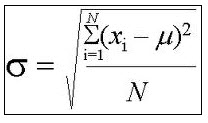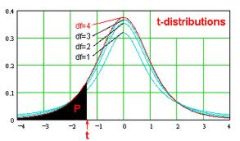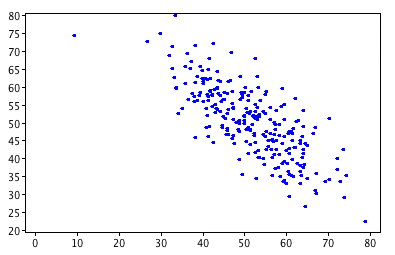Effect Size Calculator for the T-Statistic
Instructions: This effect size calculator for the t-statistic allows you to compute the value of \(r^2\) (r-squared) if you know the t-statistic (\(t\)) and the number of degrees of freedom (\(df\)):
More About this Effect Size Calculator for the T-Statistic
The idea of the effect size is to measure the size of an effect, without getting inflated by the sample size(s), which happens with the traditional use of the p-value in hypothesis testing. One measure of the size of the effect is \(r^2\) (r-squared), which is computed as
\[ r^2 = \frac{t^2}{t^2+df} \]The value of \(r^2\) is interpreted as the proportion of variation in the dependent variable that is explained by the independent variable. Another measure of effect size you can use for a t-test is Cohen's d . Cohen's d effect size is a much more commonly used measure of effect size, but \(r^2\) is also commonly reported for t-test.
Different measures of effect size for different tests
Also, observe that the measure of effect size used are specific to the statistical procedure being conducted. A One way ANOVA analysis will have its own measure of effect size, and test with nominal independent variables will have different measures of effect size for the Chi-Square test. The effect size calculator you will use is completely different.
Effect Size and Power
The power corresponds to the ability of rejecting a false null hypothesis. The large the effect size is, the higher the power will be. You can use this statistical power calculator to compute the power based on the effect size.




